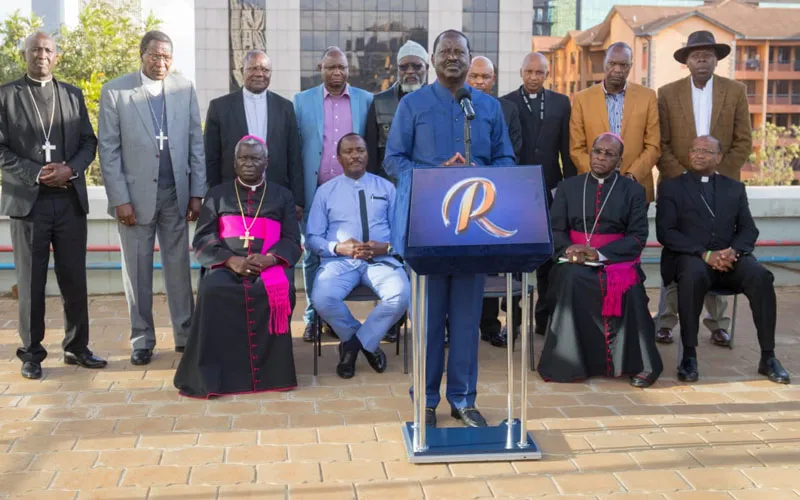The opposition leader was responding to the latest KCCB members’ statement in which they said they were “very much disturbed” by the seeming lack of progress in the choice of talks that President William Samoei Ruto and Hon. Raila agreed to undertake earlier this month to end protests.
“We are very much disturbed by the apparent standoff which could easily lead to hardened positions and delay the urgently needed process of dialogue,” KCCB members said in their April 20 statement in reference to recent reports that have indicated a “standoff” between the Kenyan government and the main opposition coalition, some national media reporting that the bipartisan talks are “on the brink of collapse” due to the hardline stand that parties in dialogue are taking, and others featuring Hon. Raila threatening to resume weekly anti-government protests.
In the six-page statement, Catholic Bishops in Kenya expressed their disapproval of “destructive demonstrations” and advocated for dialogue, which they said is “the only civil way” to resolve the county’s socio-political challenges.
“We encourage all parties and citizens to refrain from destructive demonstrations and instead commit themselves to the path of dialogue as the only civil way of resolving political and social issues affecting our country in order to have a reconciled and inclusive nation,” KCCB members said in their April 20 statement that their Chairman, Archbishop Martin Kivuva Musonde of Mombasa Archdiocese read out.
“We urge all our leaders to use non-violent means in resolving conflicts. We in particular appeal to them to embrace our national values enshrined in the Constitution instead of allowing themselves to be driven by personal and selfish political interests,” Catholic Bishops in Kenya said, reiterating their Easter Message in which they cautioned Kenyan political leaders against “seeking personal benefits”.
The Catholic Church leaders urged Kenyan politicians to “re-evaluate their value system and guided by their conscience, endeavor to do what is right for all Kenyans.”
In his April 22 response to the Catholic Bishops, Hon. Odinga defended his renewed call for demonstrations, saying they were Constitutional.
"Every person has the right, peaceably and unarmed, to assemble, to demonstrate, to picket, and to present petitions to public authorities,'' Hon. Odinga said, quoting section 37 of Kenya’s Constitution of 2010.
He went on to urge the Catholic church leadership in particular and Kenyans in general to cooperate with other Kenyans in calling on President-Ruto led government to respect section 37 of Kenya’s 2010 Constitution.
Hon. Odinga also defended his coalition’s call for an audit of the Independent Electoral and Boundaries Commission (IEBC), saying, ''We equally disagree with the characterization of our push for the audit of IEBC servers as unnecessary,''








